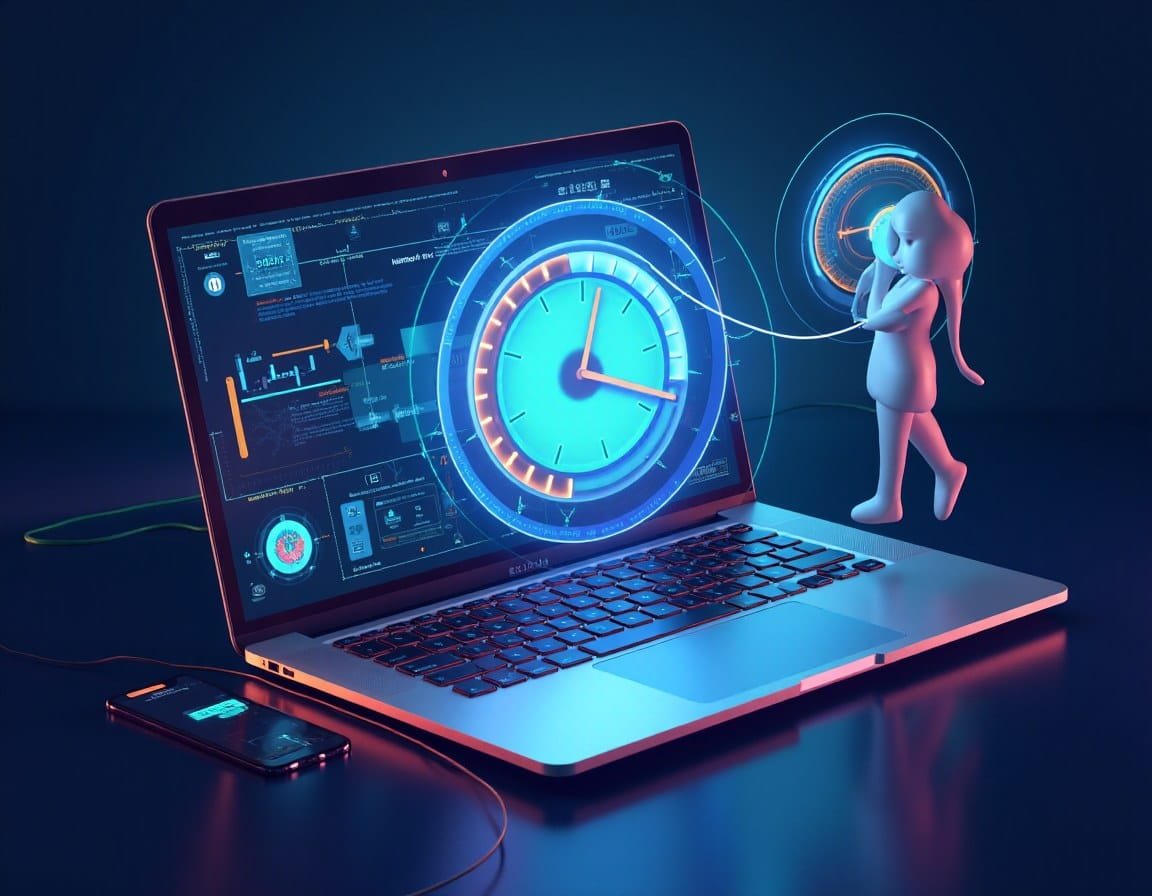“`html
Are We on the Brink of a Sleep Revolution: How Smart Sleep Technology is Redefining Our Relationship with Rest? With the rise of smart home devices and wearable technology, it’s no surprise that our bedrooms are becoming increasingly high-tech. But what does this mean for our sleep patterns and overall well-being? In this article, we’ll delve into the world of smart sleep technology solutions, exploring how these innovative tools can help you achieve better rest and wake up feeling refreshed and revitalized. From tracking your sleep cycles to optimizing your sleep environment, we’ll cover it all, providing valuable insights and expert advice on harnessing the power of smart sleep tech for a healthier, happier you.
What is Smart Sleep Technology?
Smart Sleep Technology refers to a range of advanced devices and applications designed to enhance sleep quality through monitoring and environmental adjustments. These technologies aim to provide personalized insights and solutions for better rest.
The Evolution of Sleep Technology
Over the years, sleep technology has evolved from simple alarm clocks to high-tech sleep systems that integrate seamlessly with our daily lives. The journey began with basic devices that tracked sleep duration and has now advanced to sophisticated systems that analyze sleep patterns and suggest improvements.

Top 10 Revolutionary Technologies Transforming Your Rest
- Wearable Sleep Trackers: Devices like Fitbit and Oura Ring monitor sleep stages and provide insights into sleep quality.
- Smart Mattresses: Brands like Sleep Number offer mattresses that adjust firmness based on your sleep position and movements.
- Intelligent Pillows: These pillows, such as the ZEEQ Smart Pillow, track sleep and play music to help you fall asleep.
- White Noise Machines: Devices like LectroFan create soothing sounds to mask disruptive noises.
- Smart Lighting: Systems like Philips Hue adjust lighting to mimic natural daylight, promoting better sleep cycles.
- Temperature Control Systems: Products like the ChiliPad regulate bed temperature for optimal sleep conditions.
- Sleep Apps: Applications like Sleep Cycle analyze sleep patterns and wake you up during light sleep phases.
- Advanced Sleep Masks: Masks like the Dreamlight Pro use light therapy to improve sleep quality.
- AI-Powered Sleep Assistants: Devices like Google Nest Hub use AI to monitor and enhance sleep environments.
- Smart Home Integration: Systems like Amazon Alexa can control bedroom environments to create ideal sleep conditions.
How Does Smart Sleep Technology Work?
Smart Sleep Technology utilizes sensors and algorithms to collect data on sleep patterns, such as heart rate, movement, and breathing. This data is then analyzed to provide personalized feedback and recommendations for improving sleep quality.
Benefits of Smart Sleep Technology
Integrating smart sleep technology into your routine can lead to numerous benefits:
- Improved Sleep Quality: By understanding your sleep patterns, you can make informed changes to enhance rest.
- Personalized Insights: Receive tailored advice based on your unique sleep data.
- Enhanced Sleep Environment: Adjust lighting, temperature, and sound for optimal sleep conditions.
- Better Health Outcomes: Quality sleep is linked to improved mental and physical health.
Challenges and Considerations
While smart sleep technology offers many advantages, there are challenges to consider:
- Privacy Concerns: Data collection raises questions about user privacy and data security.
- Cost: High-tech sleep systems can be expensive, limiting accessibility for some users.
- Technology Dependence: Over-reliance on technology may lead to a lack of natural sleep cues.
Comparing Popular Smart Sleep Devices
| Device | Features | Price Range |
|---|---|---|
| Fitbit Sense | Heart rate monitoring, sleep stages, stress management | $299 – $329 |
| Oura Ring | Sleep tracking, readiness score, activity monitoring | $299 – $399 |
| Sleep Number 360 | Adjustable firmness, sleep tracking, temperature balancing | $999 – $4,999 |
Case Studies: Success Stories with Smart Sleep Technology
Several users have reported significant improvements in their sleep quality after adopting smart sleep technology. For instance, a study conducted by the National Sleep Foundation found that individuals using sleep tracking devices experienced a 20% increase in sleep efficiency.
Future Trends in Smart Sleep Technology
The future of smart sleep technology looks promising, with advancements in AI and machine learning paving the way for even more personalized sleep solutions. Emerging trends include:
- AI-Driven Insights: Enhanced data analysis for deeper sleep understanding.
- Integration with Health Platforms: Seamless connectivity with health apps for holistic wellness.
- Virtual Reality Sleep Aids: VR technology to create immersive sleep environments.
Conclusion
As we continue to explore the potential of smart sleep technology, it’s clear that these innovations are transforming how we approach rest and wellness. By embracing these advanced slumber solutions, we can look forward to a future where quality sleep is accessible to all. For more information on sleep technology, visit Wellness Tech Spot.
Additional Resources
For more insights into the world of wellness technology, follow and subscribe to our updates at Wellness Tech Spot and Sleep Technology.
“`




